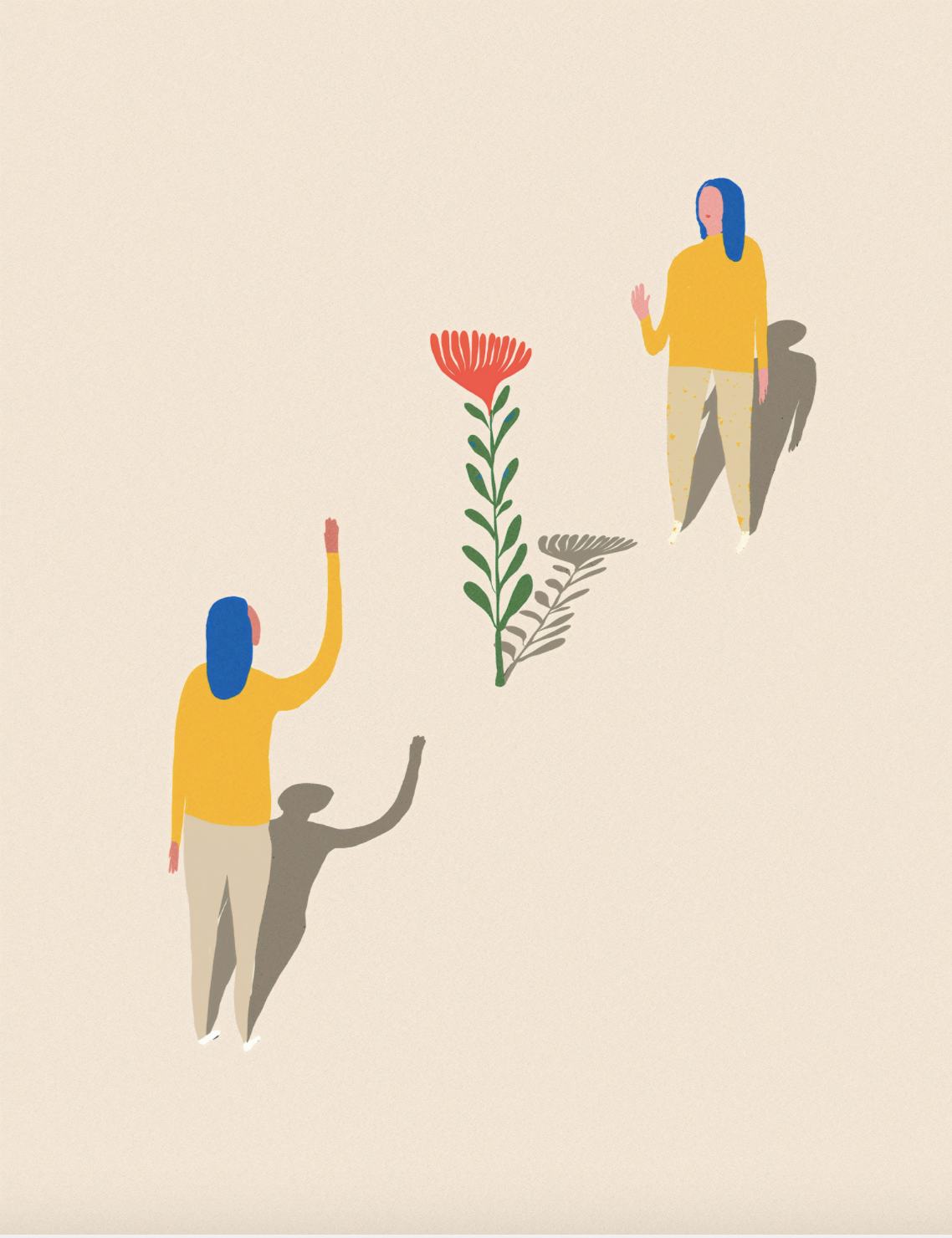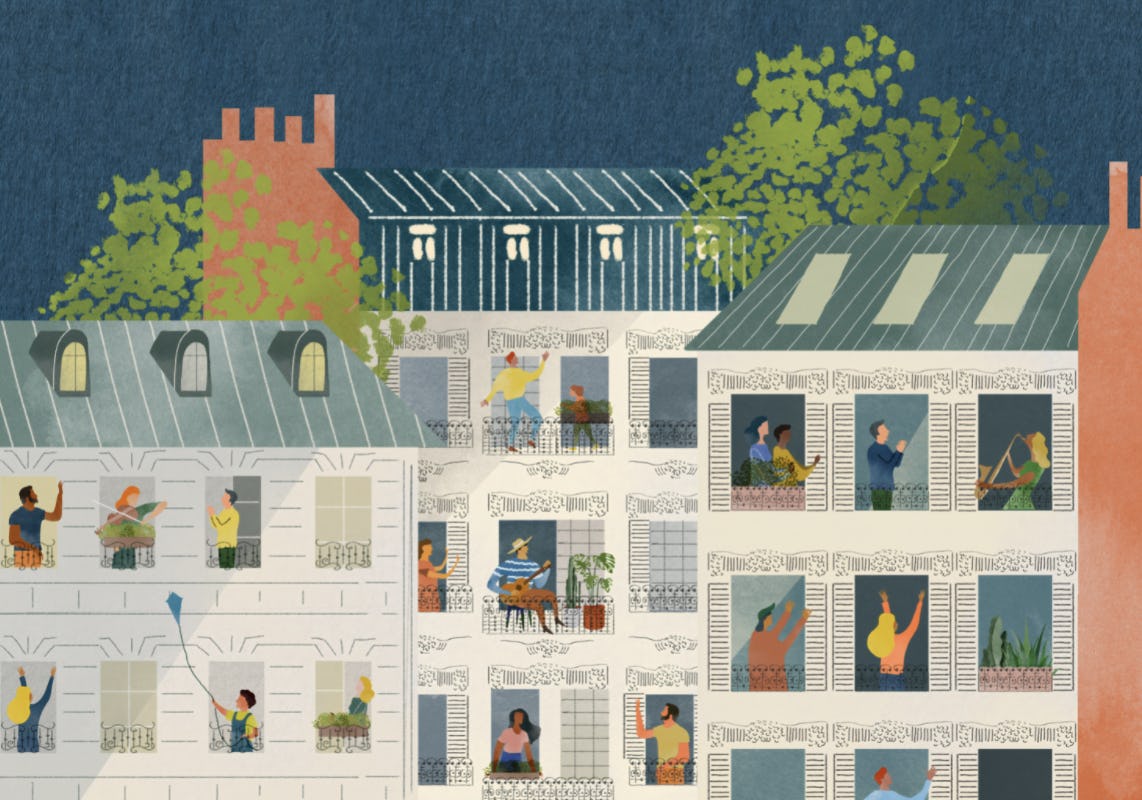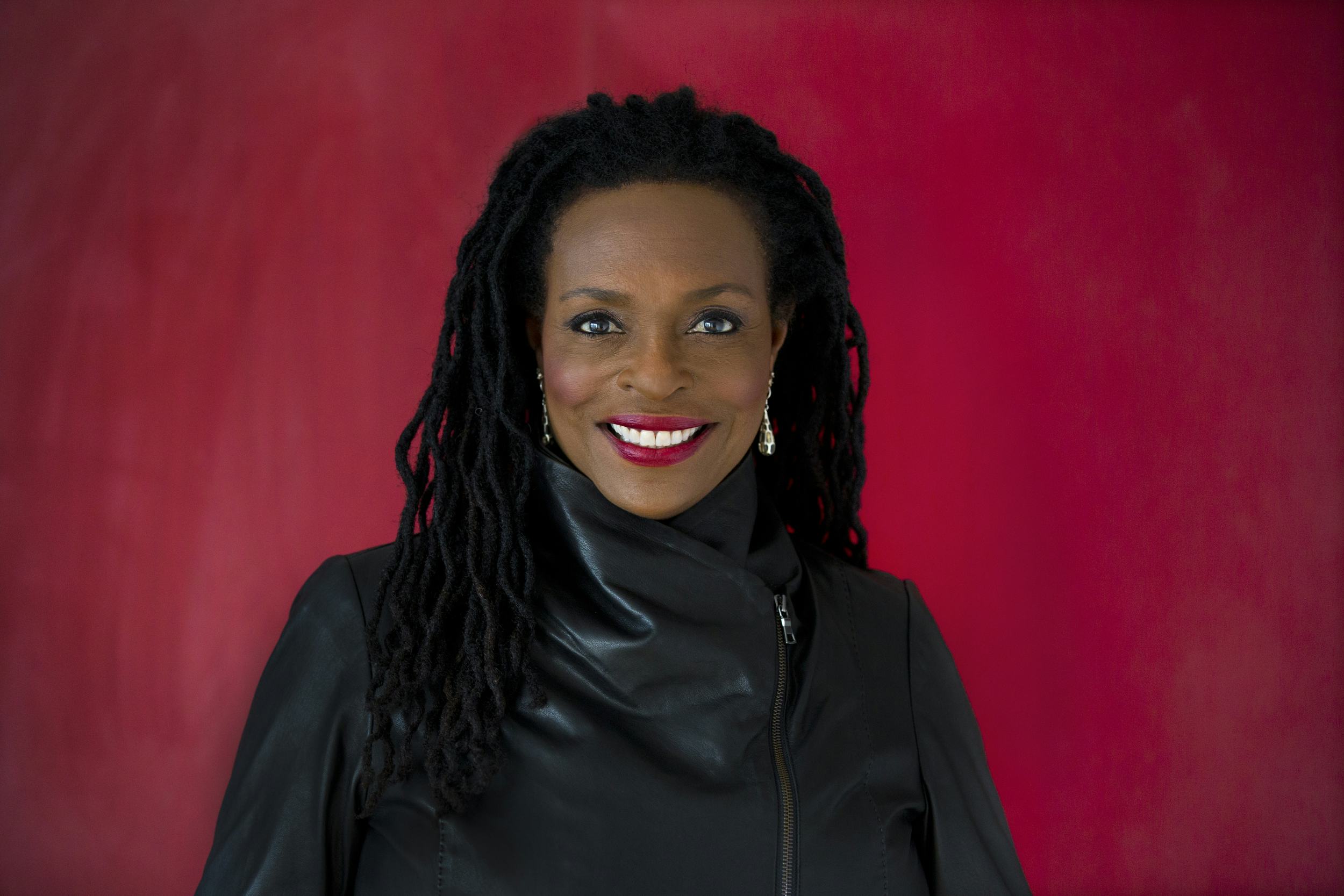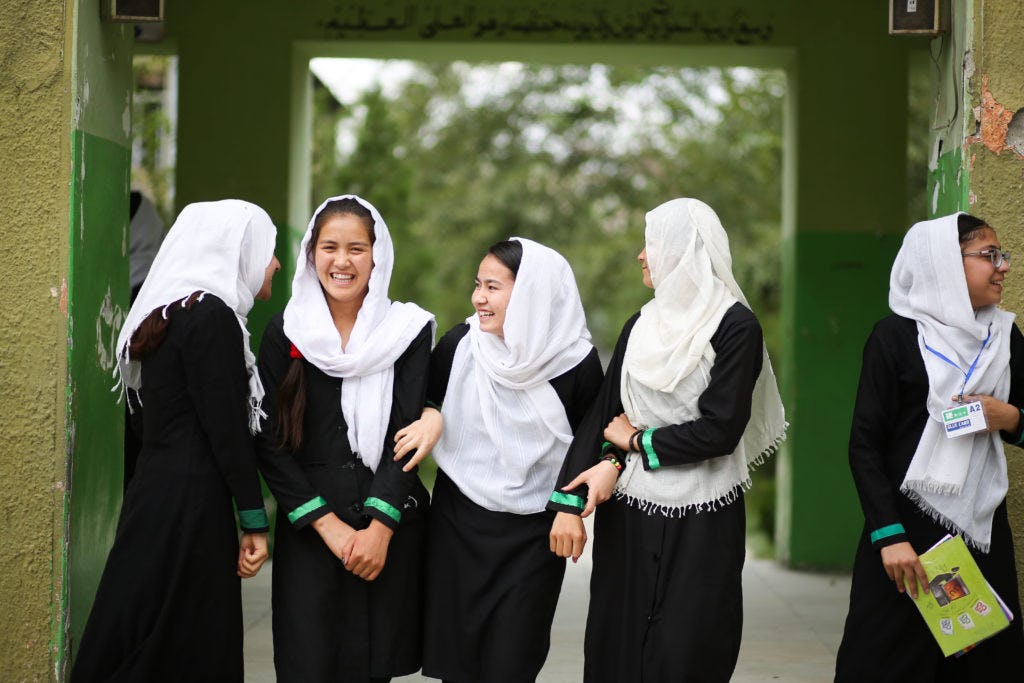To say that the pandemic slowed life is uncontroversial. Across the world, many people ceased travelling, commuting, and disposing of their leisure time freely. Digital streaming infrastructure groaned early on, but it held, and we were invited to stay home; alone together. Because many of us were already inclined to spend countless hours jacked into the borderless expanse of the internet, that’s what happened. The internet allowed us to document new domestic pursuits for commiseration and clicks and pretend that our preferred and chosen communities were as close as the nearest screen.
But the internet tries to make the world small by offering to bring us the whole of it in a highly compressed, flattened bit-stream. That’s not the whole story of life in lockdown. The pandemic also served as a reminder of a basic truth. Contra the internet’s logic, the world is already small — if only people consent to live at a human-scale.
Without a car or an Amazon Prime subscription, two choices made more plausible by my neighbourhood, the limits of a pandemic were an occasion to re-learn the bounded joys of locality.
I live in a very walkable neighbourhood in Montreal, Québec, one known for harbouring an excess of artists, students, and vegans. There’s a greasy-spoon diner nearby that’s popular with two of the three. There’s an eclectic mix of million-dollar brownstones, ageing red-brick duplexes, and small social housing blocks. In today’s real estate market, walkable is code for expensive, and it’s true that our family pays more for less space than we could in other neighbourhoods, but this is a design flaw, not a law of nature (or real estate). In making this choice, we’ve foreclosed on certain other choices (no parking space = no car). But other options, many of which are communal rather than consumer choices, have become available.
In submitting to limits — reduced private space, access to a smaller geographical area — I’ve discovered that more choice isn’t exactly an existential good. What’s given, that is, what’s unchosen, is often valuable precisely because I might have chosen otherwise if given the power and freedom to do so.
The pandemic added the clarity of experience to this abstract truth.
When COVID-19 was declared a global pandemic in February, I was practicing Lent by trying to be a more active neighbour. This involved inviting people over for dinner and letting them know that not everyone at the table would be well acquainted. We’d get to know people who were physically near but not on our relational radars. I shared the plan with some benevolent co-conspirators and asked for help, which is a habit I’ve had to cultivate. Unlike most of our public relationships, neighbouring should resist the urge to be transactional. The goal of this Lenten devotion was to sew some new patterns into our local fabric that might allow us to put what was near at hand to good use; to be neighbours. So, there I was, full of noble intentions when stay-at-home orders came down.
I hung onto my job but saw my hours cut, so, safely entombed in my domestic bunker and with a lot of free time, I asked myself a question: What does the good life in plague-time look like?
At first, it looked a lot like reading stories over Instagram live for a handful of friends and recording reflections on the psalms for my church’s emergency YouTube channel. It was board games with my wife, lots of Netflix, and playing video games online with friends. There was also the strangely communal activity of tuning in to the daily public health briefings and talking to my parents about the latest news on the phone. I video-chatted, found Zoom exhausting, and baked bread — all the things that now seem like regular pandemic stuff.
I like to think that my experience in the early days was common, that it was something shared by the majority of people on my block, my neighbourhood, my city. But there were other experiences very unlike my own.
The good life in Covidtide looked very different for different people. Because of my neighbourhood’s socio-economic diversity, some neighbours disappeared into cottages, others could afford to outsource inconvenience and risk to the gig economy, and the remainder were the people who served the others via essential jobs. Despite the inequalities at play, there were common features to the experience or features broadly available to most. With less freedom to move around, whether for travel, everyday commuting, or visits to distant friends and family, we collectively refocused on our local communities.
First, my downstairs neighbours returned early from their annual visit to family in South Africa. An older couple, though one with a youthful bohemian spirit, they entered voluntary quarantine upon their return. Although the small backyard attached to our building belongs to their basement apartment, we routinely shared it over the five years we’ve been neighbours. So it wasn’t strange in the least to offer to pick up groceries and essentials for them over the two weeks of their isolation. Instead of wrestling with the slapdash and swamped online delivery pages supermarket chains had thrown together, they enlisted a neighbour. It was, of course, a burden. Whereas our relationship had been characterized by a comfortable convenience, say, an invitation to a backyard anniversary party with plenty of drinks. Formerly, I could easily decline this kind of invitation. It was always a question of convenience. If there were more appealing choices available, I was free to choose them. Now, with mounting hospitalizations and the knowledge that age was a risk factor, my neighbours had need. They needed a neighbor, and the situation was plain: I was that neighbor, like it or not.

I’m happy to report that in this instance, my neighbourliness wasn’t begrudging. We had already established a rapport and were glad to play our roles. I don’t mean to say we pretended to be friendly, but rather that we understood ourselves to be an odd match — we wouldn’t have chosen each other, but here we were with no choice in the matter and happy all the same. I was young but old at heart. John and Janis downstairs were old but far more likely to send a warning about impending party noise. Despite our differences, we were ready to give and receive help as each needed it.
I could end the story here, a grocery store hero, but we didn’t stop being neighbours after their travel quarantine period was up. As the weeks wore on into months, we struck out into the backyard, eager for space and eager also, perhaps, for faces. John indulged my interest in gardening with spare planters and an invitation to help myself to his supply of potting soil. We took up birdwatching and reported on sightings of cardinals and cedar waxwings. When there was nothing more interesting to spot than sparrows, we named them and were happy to have them, even if we might have chosen other better birds. In attending to each other’s needs, it became easier to share small joys. Just like the sparrows who emptied the birdbath in what looked very much like delight, loving a neighbour can begin as a duty. Perhaps it’s spurred by a press conference admonition to look out for one another or the memory of a Bible verse whose reference is long forgotten. But when I tell John how I love baking bread, and he lets it slip how much he loves eating bread, we both know what’s going to happen.
It doesn’t happen on a schedule or on-demand because being a neighbour is not a service. There will be no app for that, but bread gets baked nonetheless. This is a burden, of course, but it feels light.
The pandemic offered specific opportunities to refocus on what was near at hand and likewise reminded many that what’s near is quite dear. A year of rolling lockdowns meant I walked my immediate neighbourhood like I never had. Physical distance rules meant that once crowded grocery stores now had long lines. As is natural, boredom breeds creativity and my dislike of lines sent me down side streets where I discovered a small Portuguese market even closer to home. Family-run and owned for more than 50 years, Le Marché Soares was stocked with unrecognizable brands and filled me with anxiety when I first entered. Here, you were greeted when you entered, in French if you were unfamiliar or in Portuguese if you were a regular. Anonymity was popular even before we digitized our interactions. Big, crowded spaces allow us to melt away, to move unnoticed and unscrutinized. This effect of anonymity is often characterized as a kind of freedom, enshrined in our collective psyche as the image of the townie stepping off a bus into the big city’s activity. It’s a freedom from stifling conformity or a numbing lack of novelty. But small spaces, whether towns or corner groceries, offer another type of freedom, not a freedom from but a freedom to.
If I owned a car, I might’ve chosen to do my groceries at Costco or Wal-Mart. But in that tiny, initially discomfiting, shop, I was privileged to swap the frictionless ease of maximal choice and convenience for the fruit of an established community of people. The people at Soares were my neighbours. I may not have recognized all the Portuguese brands on the shelves, but fresh fruit and vegetables look much the same everywhere. It’s hard to build a house brand for apples and onions, after all. In any case, the house brand at Soares was family. The owner happily answered my questions about the store, telling me how her grandfather had opened it 50 years prior, before introducing me to her sister and daughter, who took turns at the cash or stocking shelves.
I can already feel myself being dismissed with charges of rose-coloured nostalgia. What does it change to shop at a local mom and pop shop instead of a big box store? The experience revealed how fully we’ve capitulated to the logic of convenience and efficiency and displaced care as an essential facet of public life. Recall the shortage of flour during the first months of lockdown. In my neighbourhood, there were no 1kg bags of flour at the outpost of a billion-dollar grocery conglomerate for weeks. Maybe there was plenty available at Costco et al., but I wouldn’t know — no car. When I asked for flour at Soares, they told me that they, too, were having trouble sourcing consumer-sized packages of flour. The owner then walked me to a shelf stocked with 1 lb. white bags, the kind usually filled with coffee beans. The owner explained how she ordered large bakery-sized sacks of flour and filled the coffee bags individually to continue offering this staple to her customers. I bought two, and I baked bread the very same day.
These pandemic experiences were the result of constrained choices, gifts of necessity. But I bear the badge of pro-local uneasily because the options soon returned. Mindful of my budget, I started buying milk and eggs at the billion-dollar outpost again and regularly visiting shops that always had bright “Sale” stickers that made me feel better about buying more and caring less.
But like quarantine errands and backyard birdwatching with my neighbours, shopping at my local grocer was about more than a transaction. The truth of this was vividly illustrated the one time I had to stand in line outside Soares. It was a beautiful summer day and, as customers entered, shopped and exited, I was soon second in a line of half a dozen shoppers. The bell sounded as the door opened, and an elderly couple stood on the threshold, but they were turned inward. The man waved a copy of a small Portuguese newspaper and seemed to argue with the cashier about something, maybe soccer scores or the latest COVID numbers, I couldn’t tell you. Yet, it was a comforting scene. This was his place; Soares was a place where this man and his wife felt welcome to linger at the door, even in a pandemic.
The woman waiting to enter the store in front of me disagreed.
When the elderly couple re-entered the store to settle whatever was getting discussed, she threw her arms up in frustration. She muttered about how people had to shop; people had things to do. She looked at me; I shrugged my shoulders: “it’s a beautiful day.” She didn’t get it. I have a hard time holding onto it myself, and I don’t know how we’re to get back to it. The pandemic is the definition of a significant and costly burden, a terrible and unchosen thing. Yet, it gave us something. An opportunity, perhaps a visitation, that might permit us to see the world anew, maybe even aright for the first time.
Writing inComment, Craig Bartholomew gives shape to the wisdom we might glean from the first year of the pandemic:
“Amid speed and busyness we have too often forgotten the local and the stability of a place, with huge negative consequences for our planet, our fellow creatures, and for ourselves. Lockdown has forced us to experience life very differently, and provided us with an invitation to reflect on the type of lives we want to live and the type of societies we want to be part of. I fully understand our desire for life to return to “normal” as quickly as possible. I too want the pain and trauma of this time to pass. But wisdom counsels that we reflect hard on just what passes as normal.”
The pleasing paradox in all this is that limits open new horizons to us. We are small and bounded; we have both less control over nature but a greater capacity to care for our immediate world than we might have imagined. G.K. Chesterton wrote that “the world will never starve for want of wonders; but only for want of wonder.” Little more than a backyard birdfeeder or sunflower seedling proves his observation true. We look for wonders in the wrong places, imagining them far, or else we’re content to press them under glass, believing all things worth having should be on-demand, subject to our appetites. Instead of something we can hold and care for, we’re offered everything right now, an offer that’s as beguiling as it is disappointing. But a live-feed of all the world’s far-flung spectacle is emphatically boring next to the pleasures near at hand: front porch conversations and the fruits of a backyard garden.
Small things to be sure, but made more lovely for their being ordinary. Instead of returning to a “normal” where we happily exchange meaningful local action for convenient consumption, let us accept the unchosen invitation to wonder together: what’s in a neighbourhood?
Matt Civico writes about faith, technology, and being alive in 20xx from Montreal, Québec. He is the editor of Common Pursuits and writes the Good Words newsletter.
Discover more from Matt Civico.









